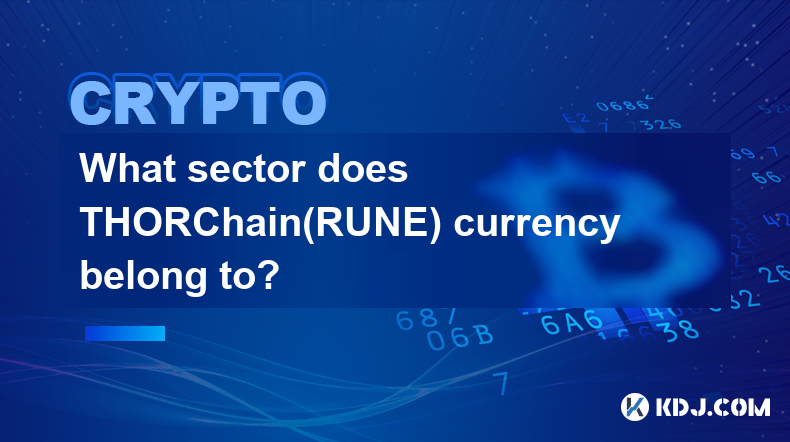-
 Bitcoin
Bitcoin $94,547.8466
0.21% -
 Ethereum
Ethereum $1,806.7594
0.31% -
 Tether USDt
Tether USDt $0.9999
-0.01% -
 XRP
XRP $2.1234
-1.68% -
 BNB
BNB $599.0549
1.55% -
 Solana
Solana $144.9772
-0.70% -
 USDC
USDC $0.9999
0.00% -
 Dogecoin
Dogecoin $0.1701
-0.92% -
 TRON
TRON $0.2476
-0.69% -
 Cardano
Cardano $0.6632
-2.18% -
 Sui
Sui $3.3845
2.33% -
 Chainlink
Chainlink $13.6176
-2.44% -
 Avalanche
Avalanche $19.8101
-1.14% -
 Stellar
Stellar $0.2591
-3.29% -
 UNUS SED LEO
UNUS SED LEO $8.6607
-4.53% -
 Toncoin
Toncoin $3.0282
0.21% -
 Shiba Inu
Shiba Inu $0.0...01272
-1.38% -
 Hedera
Hedera $0.1745
-0.92% -
 Bitcoin Cash
Bitcoin Cash $358.3442
-0.02% -
 Hyperliquid
Hyperliquid $20.2508
-1.00% -
 Litecoin
Litecoin $83.1410
-4.05% -
 Polkadot
Polkadot $3.9239
-1.68% -
 Dai
Dai $1.0000
0.00% -
 Monero
Monero $281.8205
3.19% -
 Bitget Token
Bitget Token $4.2974
0.06% -
 Ethena USDe
Ethena USDe $1.0004
0.00% -
 Pi
Pi $0.5885
-0.17% -
 Pepe
Pepe $0.0...07957
-3.94% -
 Bittensor
Bittensor $376.0863
6.98% -
 Uniswap
Uniswap $4.9441
-2.18%
What sector does THORChain(RUNE) currency belong to?
THORChain's RUNE token operates primarily within the Decentralized Finance (DeFi) sector, specializing in cross-chain liquidity and facilitating non-custodial crypto asset trading through its decentralized exchange.
Dec 08, 2024 at 03:55 am

What Sector Does THORChain (RUNE) Currency Belong To?
THORChain (RUNE) is a cryptocurrency that is native to the THORChain blockchain, a decentralized network designed for cross-chain liquidity and trading. The RUNE token plays a crucial role in the functioning of the network, facilitating various operations within the THORChain ecosystem.
Decentralized Finance (DeFi)
THORChain primarily operates within the DeFi sector. DeFi refers to a wide range of financial applications and services built on blockchain technology, enabling users to perform financial transactions without the need for intermediaries such as banks or brokers. THORChain's decentralized exchange (DEX) is a key component of its DeFi offerings, allowing for the trading of crypto assets across different blockchains.
Cross-Chain Liquidity
THORChain specializes in cross-chain liquidity, facilitating the seamless transfer of assets between different blockchains within its network. Traditional crypto exchanges often limit trading to within their own platforms, but THORChain enables interoperability, expanding the liquidity available to users. This feature is essential for maximizing the utilization of crypto assets and promoting a more vibrant and interconnected crypto ecosystem.
Decentralized Exchange (DEX)
THORChain operates a decentralized exchange that allows users to trade crypto assets in a non-custodial manner. Unlike centralized exchanges, which hold user funds, THORChain utilizes smart contracts to execute trades directly on the blockchain, giving users full control over their assets. This decentralization enhances the security and transparency of trading operations.
Native Token: RUNE
The RUNE token is the native cryptocurrency of the THORChain network. It serves several key functions within the ecosystem:
- Transaction Fees: RUNE is used to pay transaction fees on the THORChain network. These fees cover the computational costs associated with processing transactions and ensure the smooth operation of the system.
- Liquidity Provision: Users who provide liquidity to THORChain's liquidity pools receive RUNE tokens as rewards. This incentivizes participation and contributes to the growth of the network's liquidity.
- Governance: RUNE holders have voting rights on governance proposals, allowing them to participate in the decision-making process and shape the future development of THORChain.
Role of RUNE in THORChain
Within the THORChain ecosystem, RUNE plays a pivotal role in:
- Facilitating cross-chain liquidity by incentivizing liquidity provision
- Empowering users with non-custodial trading through its DEX
- Enabling decentralized governance through token voting rights
- Generating revenue for the network through transaction fees
Disclaimer:info@kdj.com
The information provided is not trading advice. kdj.com does not assume any responsibility for any investments made based on the information provided in this article. Cryptocurrencies are highly volatile and it is highly recommended that you invest with caution after thorough research!
If you believe that the content used on this website infringes your copyright, please contact us immediately (info@kdj.com) and we will delete it promptly.
- Major cryptocurrencies are off to a muted start this week
- 2025-05-06 12:10:13
- Major cryptocurrencies are off to a muted start this week
- 2025-05-06 12:10:13
- Bitcoin price plunges as low as $93400, down 5% from last week's high of $98200
- 2025-05-06 12:05:16
- Bitcoin (BTC) Will Probably Remain "Rat Poison Squared" at Berkshire Hathaway After Warren Buffett Steps Down as CEO
- 2025-05-06 12:05:16
- Altcoins Experienced Their Most Significant Price Rally
- 2025-05-06 12:00:24
- Solana Foundation Fixes a “zero-day” Bug That Gave Attackers Unlimited Token Minting Capabilities
- 2025-05-06 12:00:24
Related knowledge

BSV transaction fees suddenly increased? How to adjust the handling fee to save costs?
May 02,2025 at 06:42am
Understanding BSV Transaction FeesBSV (Bitcoin SV) aims to fulfill the original vision of Bitcoin as a peer-to-peer electronic cash system. One of the key elements in this system is the transaction fee, which compensates miners for including transactions in the blockchain. Recently, users have noticed a sudden increase in BSV transaction fees, which can...

Does BSV transaction require real-name authentication? Is anonymous trading feasible?
May 03,2025 at 03:14pm
The question of whether BSV (Bitcoin SV) transactions require real-name authentication and whether anonymous trading is feasible is a complex one, deeply intertwined with the broader dynamics of cryptocurrency regulations and blockchain technology. Let's delve into these aspects to provide a comprehensive understanding. Understanding BSV and Its Transac...

How to solve the high slippage of BSV transactions? How to choose between limit and market orders?
May 02,2025 at 09:01pm
High slippage can be a significant concern for traders dealing with Bitcoin SV (BSV) transactions. Slippage refers to the difference between the expected price of a trade and the price at which the trade is actually executed. This can occur in fast-moving markets or when there is low liquidity. To address this issue, understanding the mechanics of slipp...

What if BSV transactions are frozen? How to contact customer service to unblock the account?
May 05,2025 at 05:01am
When dealing with Bitcoin SV (BSV) transactions, encountering issues such as frozen transactions can be a stressful experience. This article will guide you through the process of understanding why BSV transactions might be frozen and how to contact customer service to unblock your account. We will cover the reasons behind frozen transactions, steps to t...

What if BSV node synchronization is slow? How to optimize local wallet performance?
May 03,2025 at 04:35pm
When dealing with BSV (Bitcoin SV) node synchronization and optimizing local wallet performance, it's crucial to understand the underlying issues and implement effective solutions. Slow synchronization and poor wallet performance can significantly hinder your experience with the BSV network. This article will delve into the reasons behind slow BSV node ...

How to check BSV transaction records? How to use the blockchain browser?
May 03,2025 at 06:50am
Checking BSV (Bitcoin SV) transaction records and using a blockchain browser are essential skills for anyone involved in the cryptocurrency space. These tools allow you to verify transactions, check wallet balances, and understand the flow of funds on the blockchain. This article will guide you through the process of checking BSV transaction records and...

BSV transaction fees suddenly increased? How to adjust the handling fee to save costs?
May 02,2025 at 06:42am
Understanding BSV Transaction FeesBSV (Bitcoin SV) aims to fulfill the original vision of Bitcoin as a peer-to-peer electronic cash system. One of the key elements in this system is the transaction fee, which compensates miners for including transactions in the blockchain. Recently, users have noticed a sudden increase in BSV transaction fees, which can...

Does BSV transaction require real-name authentication? Is anonymous trading feasible?
May 03,2025 at 03:14pm
The question of whether BSV (Bitcoin SV) transactions require real-name authentication and whether anonymous trading is feasible is a complex one, deeply intertwined with the broader dynamics of cryptocurrency regulations and blockchain technology. Let's delve into these aspects to provide a comprehensive understanding. Understanding BSV and Its Transac...

How to solve the high slippage of BSV transactions? How to choose between limit and market orders?
May 02,2025 at 09:01pm
High slippage can be a significant concern for traders dealing with Bitcoin SV (BSV) transactions. Slippage refers to the difference between the expected price of a trade and the price at which the trade is actually executed. This can occur in fast-moving markets or when there is low liquidity. To address this issue, understanding the mechanics of slipp...

What if BSV transactions are frozen? How to contact customer service to unblock the account?
May 05,2025 at 05:01am
When dealing with Bitcoin SV (BSV) transactions, encountering issues such as frozen transactions can be a stressful experience. This article will guide you through the process of understanding why BSV transactions might be frozen and how to contact customer service to unblock your account. We will cover the reasons behind frozen transactions, steps to t...

What if BSV node synchronization is slow? How to optimize local wallet performance?
May 03,2025 at 04:35pm
When dealing with BSV (Bitcoin SV) node synchronization and optimizing local wallet performance, it's crucial to understand the underlying issues and implement effective solutions. Slow synchronization and poor wallet performance can significantly hinder your experience with the BSV network. This article will delve into the reasons behind slow BSV node ...

How to check BSV transaction records? How to use the blockchain browser?
May 03,2025 at 06:50am
Checking BSV (Bitcoin SV) transaction records and using a blockchain browser are essential skills for anyone involved in the cryptocurrency space. These tools allow you to verify transactions, check wallet balances, and understand the flow of funds on the blockchain. This article will guide you through the process of checking BSV transaction records and...
See all articles




















































































